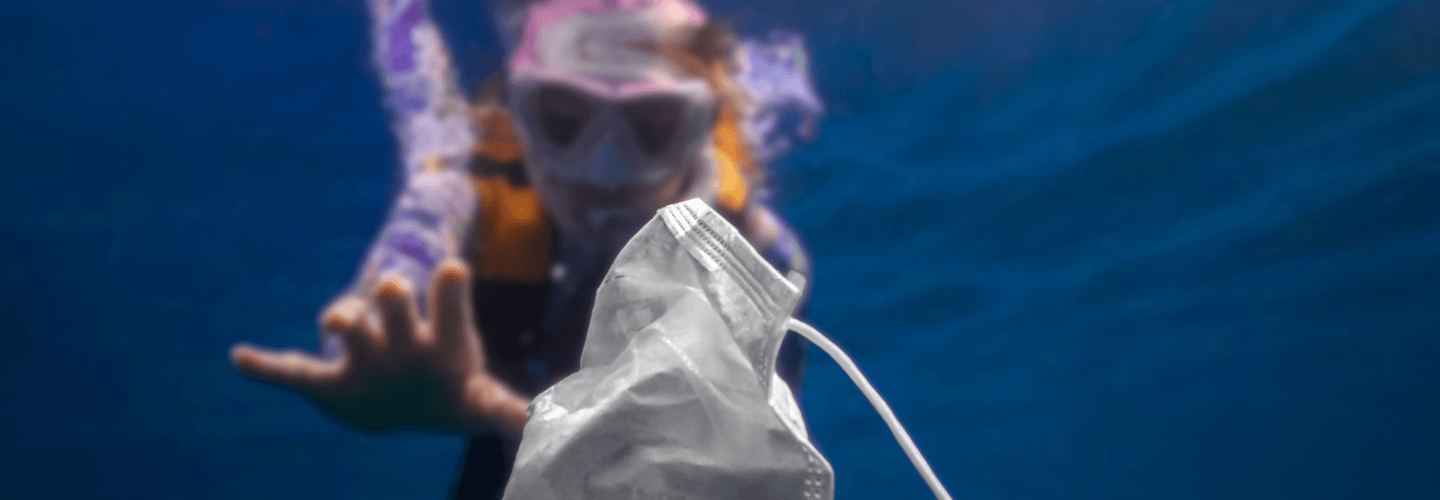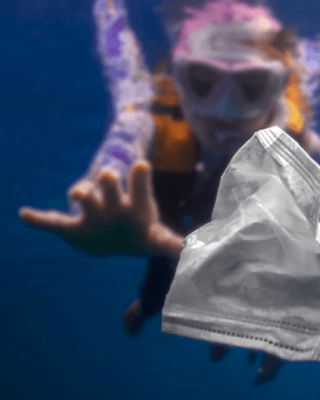

Environmental
We nurture the practice of environmental stewardship to promote marine ecology and eco-friendly solutions. The main challenges we face are emissions, ship recycling, plastics, biofouling, and whale collisions.
The shipping sector faces many environmental challenges specific to the nature of its activities, and for a sustainable future, we have a part to do.
So we invest great efforts to protect the environment and minimize out environmental impact.
01
Emissions
X-Press Feeders is committed to reducing our emissions to reach zero by 2050. We are focused on improving the fuel efficiency of our fleet through various operational and technical initiatives. Our main aim is to have a holistic strategy to reduce our emissions. Through these initiatives, we aim to achieve 20% emissions savings by 2035, and 50% by 2040 compared to a 2021 baseline, on track to hit net zero by 2050. This strategy depends upon the availability and affordability of certain technologies, which we are constantly reviewing to meet our goals sooner than our stated aims. We see collaborations as critical to us achieving our goals, which is why we have partners across the industry helping us to achieve greater visibility, accountability, vessel performance and lower GHG emissions.
02
Ship recycling
To-date we have not had to scrap any vessels, however, we do recognize our fleet is ageing. We are in the process of evaluating to joining the Ship Recycling Transparency Initiative, and we support the Hong Kong convention on ship recycling. If selling our second-hand vessels for onward trading, we are working to enforce a clause in our sales forms confirming that the next owner agrees to scrap the vessel responsibly.
03
Plastics
One of the most common pollutions in the ocean is plastic. We have made it a point to try to reduce plastic use both in offices and on vessels. We had engaged a third-party vendor to do an audit on our plastics use on board our vessels, and based on the outcome, we are looking into minimising usage of bottled drinking water and providing alternative means of portable drinking water. We are also working with suppliers to minimise the usage of plastic during the supply of stores and spares.
04
Biofouling
Biofouling or biological fouling is the accumulation of microorganisms, plants, algae, or small animals where it is not wanted on surfaces, in our case, it would be our ship hulls and equipment. Biofouling occurs everywhere but is most significant economically to the shipping industries, since fouling on a ship's hull significantly increases drag, reducing the overall hydrodynamic performance of the vessel, and increases the fuel consumption. Our operational teams ensure all our operated and non-operated vessels hulls are regularly cleaned to avoid unnecessary additional emissions / fuel consumption due to hull fouling which makes our vessels less efficient. We are using anti-fouling paints which are approved by international authorities, including in Europe and USA. We do not use tributyltin (TBT) or any other paint type which is harmful for the environment. For Vessels docking from 2022, we are applying Ultra Premium paints (viz. Hempel Globic 9500m, Jotun X200) which help in reducing the fuel consumption and hence the overall emissions. All docking vessels are full blasted before paint application to further improve the hull smoothness and fuel efficiency. Starting 2023, we have introduced Hempel X7 (Silicon) and Hempel Sonic coatings for our fleet which will further improve their performance.
05
Whale collision
As international trade expands, shipping traffic increased drastically. Many of the world’s busiest shipping lanes overlap with areas where whales feed and breed. When ships travel quickly through these areas, there is a high risk of collision, injury and death, as whales are often unable to get out of the ship’s path in time. To avoid whales from colliding our vessels, we instruct our operated and non-operated vessels to slow down/take the required precautions in whale zones and seasons. We also encourage our crews to report any whale collisions if they do occur basis the IWC ship strike database. And we review the statement of facts to improve our procedures whenever if these events do happen.
View more topics: